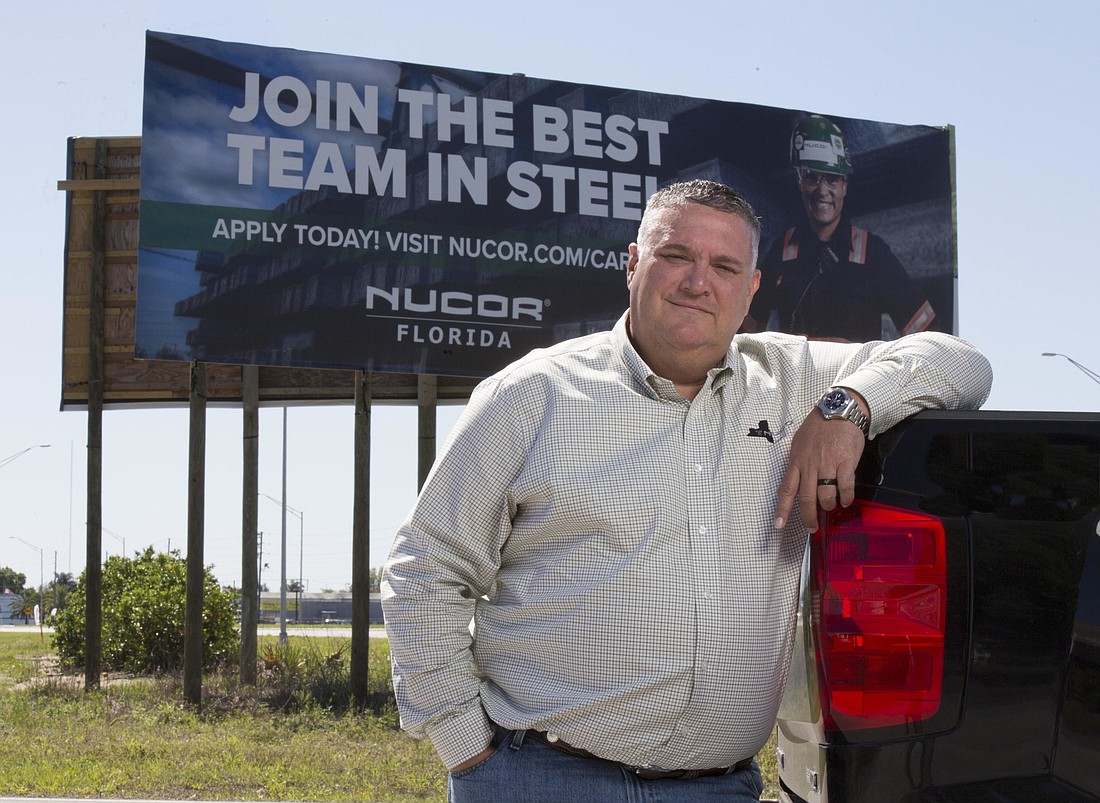- December 15, 2025
-
-
Loading

Loading

On a red-dirt road framed by Ben Hill Griffin’s orange groves south of Frostproof, there’s a new billboard facing U.S. 27. It reads: “Now Hiring. Join The Best Team In Steel.”
Nucor Corp. didn't break ground on its $240 million micro-mill in Polk County until April. But the nation’s largest steelmaker has been generating buzz and excitement, with that billboard and other marketing, since late 2017 when it announced the 400-acre site had been selected from among 60 locations across the Southeast for a new plant.